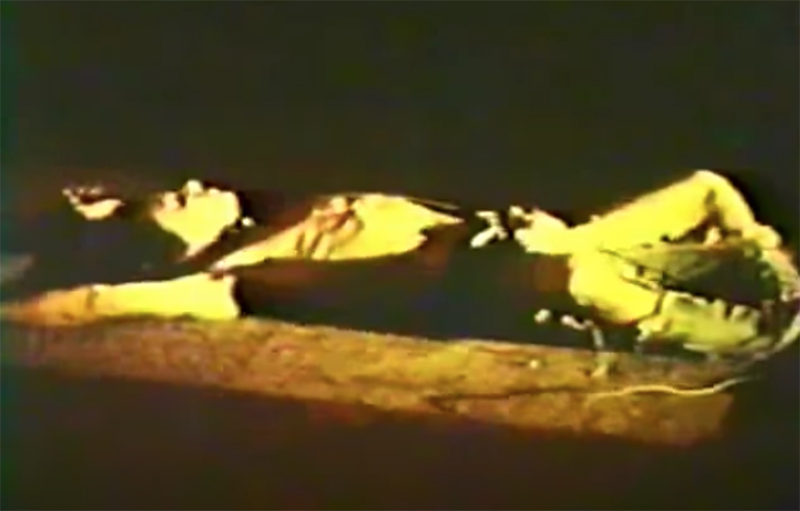
Nobody loves a band more than a diehard follower of the Stooges. Through thick and thin, they cling to whatever recording detritus or tidbit of lore is handed down, like a drowning man clutches a life preserver in an ocean liner sinking.
They chase every bootleg with the fervour of a pre-urban renewal Cass Corridor junkie hustling a hit. They celebrate the band’s posthumous legend status and annoy non-believers with trivia, simultaneously living vicariously through the stories of the Stooges' addled (pre-reunion) stumbles and falls.
All this and more is why the news that broke in June this year about a high-quality desk tape concert recording of the original line-up materialising, a full five decades after the event, hit the faithful like a phalanx of neighbourhood leaf blowers at 7am on a hungover, suburban Saturday morning.
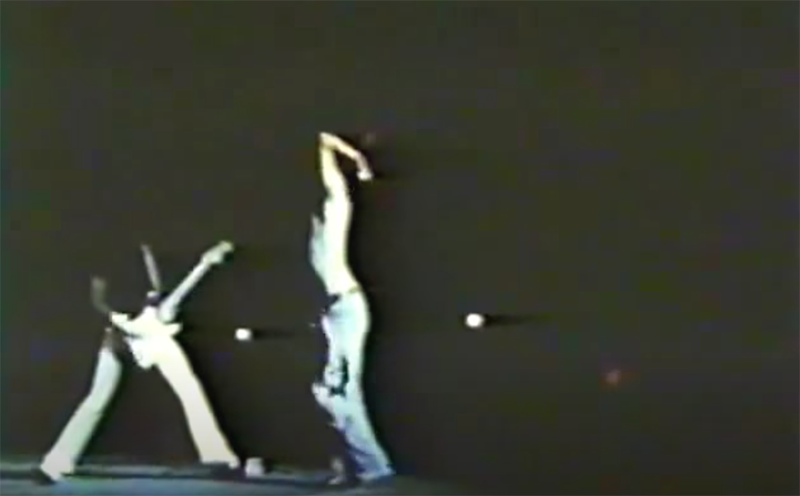 Ron and Iggy at Goose Lake.
Ron and Iggy at Goose Lake.
The detail of the announcement unfolded even more intriguingly. It was a recording of the band’s Goose Lake Festival performance in August 1970 before 200,000 fans - the gig at which original bassist Dave Alexander was summarily dismissed by band leader Iggy Pop for a drug and/or alcohol-induced ,mid-performance choke.
This was surely the stuff of dreams, said one side of the collective brain. It can’t be true and if it is, it can’t be very good, said the other.
Oh ye of little faith.
Did ‘Zander really freeze and stop playing? How the fuck did a full Stooges show survive for 50 years and not surface before now? And did the Stooges really get closed down prematurely after your favourite well mannered boy, The Singer, exhorted a drug-fucked crowd to tear down a security fence that separated them from the stage?
Read on and all will be revealed.
Meanwhile, the headline news is all good. The recording IS a motherlode of previously unheard aural Stooges carnage, and it’s out next week globally via Third Man Records, the Nashville-via-Detroit label founded by Big D local boy done good, Jack White.
So, some background.
Goose Lake was a turning point for both the Stooges and the ballroom scene of their home state, Michigan, from which they sprang. A massive three-day outdoor festival running from August 7-9, 1970, and conceived by wealthy promoter Richard Songer, it drew on Grande Ballroom notables Russ Gibb and Tom Wright for its planning.
Uncle Russ and Wright assembled a stellar bill. National and international acts like The Faces, Jethro Tull, Chicago, Ten Years After, The Flying Burrito Brothers, Mountain, John Sebastian, the James Gang, The Flock and The Litter mixed it with locals Bob Seger, the MC5, Detroit (with Mitch Ryder), Brownsville Station, Savage Grace, Third Power, SRC and the Stooges.
The Stooges were at the end of a run of dates after recording their second album, the stunning "Fun House", in Los Angeles in May. They played the middle day of the festival, and the album would be released by their label Elektra 10 days later.
Good Lake almost didn't happen. Local authorities unsuccessfully sought a court injunction to stop a likely erosion of young moral fibre. Without wanting to be a hindsight killjoy, there may have been something in that. By the time the Stooges turned up, the place was awash with drugs.
Now, this may seem hard to believe, but it was a river into which most Stooges members and their crew would happily dive into - despite bassist Alexander being under singer's orders not to imbibe after a recent run of attitude drift and indifferent attendance at rehearsals.
This is a critical piece of information. Alexander's sacking prefaced a period of instability that ultimately ended the band's first life. There's no doubting the untutored Alexander's tone and slinky, fluid playing was just as important part of "Fun House" as Scott Asheton's heavy swing, Ron Asheton's snaking blues guitar wash, Iggy's other worldly vocal and lyrics and newcomer Steve Mackay's avant skronk sax.
That's not to diminish the greatness of subequent line-ups or achievements like "Raw Power" Alexander would die five years later of a pulmonary edema at the age of 27, after admission to hospital for alcohol-related pancreatitis. R.I.P..
The story behind "Live At Goose Lake: August 8, 1970" is almost as intriguing as the music. Compiler Ben Blackwell - part-owner of Third Man Records and nephew of Jack White - is a fervent Stooges fan. Detroit-raised, he grew up on Nirvana but came to the Stooges at age 15 via a copy of their first self-titled album that his uncle, Jack White, fished out of a trash can.
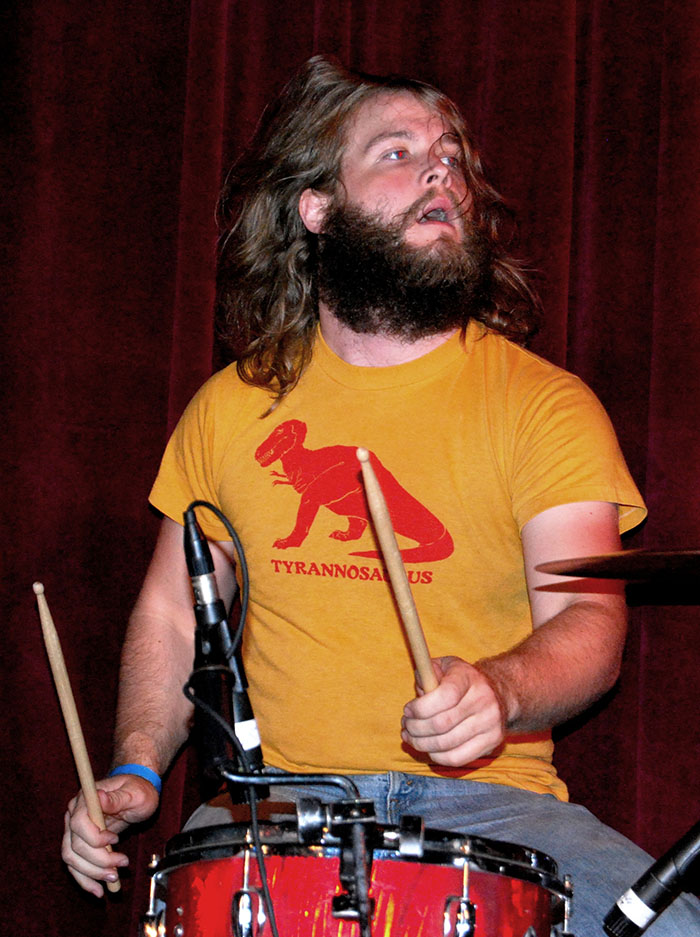
Blackwell is one of the drummers in The Dirtbombs, a writer of renown, as well as a former roadie and archivist for The White Stripes, who lives and breathes music. He got to see the Stooges close up and personbal at the Big Day Out festival dates in Australia in 2006 when The White Stripes headlined - hitting the stage right after the Stooges. You can read his blog about music here.
Ben is also an ardent collector of Stooge ephemera - an Australian 45 of "I Wanna Be Your Dog" on the Astor label that was gifted to him by Melbourne music scene figure Bruce Milne is a prized possession - so it's fateful that he's driving the public release of "Live At Goose Lake: August 8, 1970".
The following is an e-discussion that was salvaged after technical issues scuppered the recording of a 90-minute Skype chat.
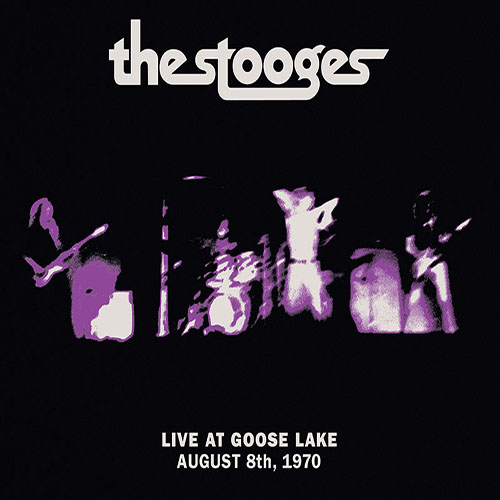
Q When and how did the recording surface? You said the guy who recorded them wasn’t doing front-of-house and was recording for his own purposes because the audio doesn’t synch with the rough video that is out there.
The Goose Lake tapes were languishing in the confines of a 170-year-old house in Wyoming, Michigan. The Rogers Mansion, as it's known. Come 2015 the family (who'd held continuous ownership of the house since it was built) decided to finally sell and in the process had to remove generations of family crap that had piled up.
Joshua Rogers spotted the tapes that were recorded by his dad, James Cassily, who was a sound engineer in Michigan going back to the late '60s. James passed away in 2005, so we don't really know WHY he was recording the show. He'd done a lot of work with Teegarden & Van Winkel, who emceed the festival, but as far as we can surmise, he wasn't doing front-of-house for any of the bands and he wasn't recording as part of the film crew...as the audio on the rough cut of the documentary doesn't seem to match up either fidelity-wise or even input wise...
If you listen to the film clip of "1970" it ends in a weird flame-out; you hear someone say 'the lead Stooge freaked out...he jumped over the fence...we lost power on the amp' preceded by a flare of Steve's sax. But on the tape we have, none of that's there.
Q The owner must have had an awareness of the band’s significance and that Third Man would be up to release them. That in itself must have been satisfying.
Yeah, the fact that Josh had the forethought to NOT toss these tapes is pretty phenomenal. There's a real satisfaction in our REPUTATION having been the motivating factor in his coming to us. He knew what we'd done, he was impressed by it...we'd already done the hard work.
Q Was it much of a task to revive the tapes? You said the 1/4 inch tape was in good shape.
The tapes themselves were solid...no shedding or need to bake them, couldn't have asked for anything better than whatever the climate was of that Michigan basement. Or attic. They're 1/4" two-track tapes...but it's not like they're perfect stereo or anything close.
It seemed like 70-80 percent of the audio we wanted was from one of the channels. I still can't really figure out what the weird channel split was for. Like, why was it so off?
As these aren't multi-tracks, we didn't have the ability to say, just boost Ron's guitar in the mix. We could manipulate the EQ to raise the frequency of his guitar, but that would also raise any of those same frequencies that are in Iggy's voice. In the end, I'm pretty sure we summed the recording to mono as it just sounded better that way.
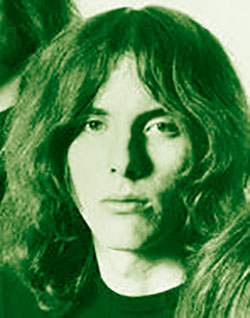 Q Talk about Dave’s performance from a technical angle. The myth about him not playing at all has now been put to bed. What about the others?
Q Talk about Dave’s performance from a technical angle. The myth about him not playing at all has now been put to bed. What about the others?
I mean, I've been a Stooges fan since I was 15. And I feel like I've heard the tale of "Dave didn't play a note" for what feels like that entire time. So, that anticipatory feeling, having gotten the transfers back from the studio (who I believe were unaware of the significance of the show), it's only NOW, over two years later, that I've absorbed the enormity of that moment.
I would be the FIRST person to be able to answer the question definitively. And once I'd heard it, me sharing the info from there, or even sharing a song or whatever, would be prefaced with the context of "Dave DID play bass!" The correcting of the narrative starts right there. I'd be amazed just to HEAR this stuff, let alone be the one shepherding it into the world and public consciousness.
And yes, Dave is present. His bass playing isn't PERFECT, but it is by no means bad. He really fucks up on "Loose" like every time the versus changes key and goes into the chorus. But otherwise, man, if this is the level of playing that would cause Iggy to remember it as a BAD Stooges show, shit, man...what in the hell did a GOOD show sound like? Because to my ears, I think this gig cooks. Everyone else in the band totally steps up and lays it down. The band is on-point.
Q What makes this recording so important in the context of the Stooges and their three distinct phases?
I think knowing that Dave didn't totally tank the gig and becoming more aware of the fact that Dave already was on his way out (and put up no kind of fight when he got the axe) makes me feel like this show isn't as much of a downer or this black cloud that I previously had.
Additionally, it's arguably the BEST sounding Stooges live recording from ANY line-up of the band and the ONLY one of note for this line-up. The fact that we have NO tapes of the band doing any first album (or earlier) material is kinda befuddling. There's more live recordings of the Jimmy Recca line-up than the Alexander line-up...how fucking wild is that?
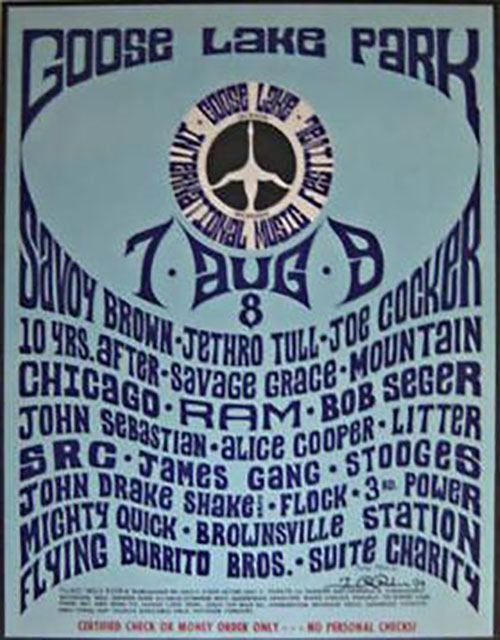
Q As a drummer what impresses you most about hearing Rock Action’s playing on this recording?
Scott's drumming here is probably my favorite performance of his ever. The studio recordings I could never quite geek out about the drums. They're good. I don't dislike them. But I just wasn't crazy impressed. But here...damn. You can tell that he's really grown into the songs.
Shit, I've been there before. In the studio, you're just trying to get through the song, trying not to be the one to fuckI up, so you're holding back, you're not playing your best risk-taking fills. But on this live recording? He's lived with the songs. The arrangements had been finalized and he knew what he could do. His fills on "TV Eye" alone are just bonkers. Life-affirming. I now feel like I finally GET Rock Action.
Q What’s your peak song from Goose Lake?
"Fun House" no doubt. I think that this live take actually SURPASSES the quality and the intensity of the album cut. It makes sense...as the studio album was just meant to be the band's live set, in order, the throb, it all really crescendos on "Fun House" and then kinda devolves into madness on "L.A. Blues." I mean, the live version of "Fun House" makes the proper recorded version sound tame. Makes it sound polished. That's a HARD thing to do when you're talking about "Fun House."
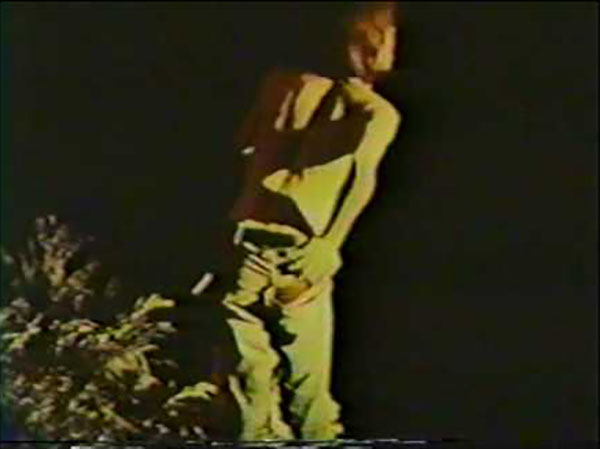
Q Talk about the first time you cranked the restored tapes in the Third Man office.
I touched on it a bit earlier, but the best part was, maybe five minutes after I started playing the music for the first time, totally unannounced, totally unexpected, my boss, Jack White waltzes into the office. He looks at me, "Down on the Street" blaring just about as loud as it will go and asks "What's this?" And I say "Stooges live at Goose Lake, Dave Alexander's last show." And his eyes kinda widen and he asks "Can we put it out?" and me, just over-confident as hell, I say "I'm already working on it."
Q And please talk about the liners by former Creem magazine writer Jaan Uhelszki, who of course was there and is one of the first women to work in rock and roll journalism.
I adore Jaan, there's a certain Detroit sensibility I don't get enough of down here in Nashville, but phone calls with her are just the perfect dose. Anyway, she was there at Goose Lake, she doesn't really make a big deal about that in the notes, but she did an amazing job of tracking down a mess of folks who were also there. And she just so skilfully wove together the different accounts, from roadies and girlfriends and other bands.
I like the fact that she kinda just presents what people said, what they recall, and lets the reader interpret it how they may. She doesn't come down as all-knowing or even telling people that they're downright wrong. But there's definitely recollections from people with false memories. You know, there was an open-air drug market at the festival...so it feels like for every person that was at Goose Lake and remembered something, there was two additional people who were there but didn't remember a thing.
Q Talk about Steve Mackay’s contribution to the band and the recording?
I mean how else could you improve on such a hot band? Steve's sax was the only way to up the ante. To freak out. To push the boundary. And it's incredibly unique. His sax and the songs he play on just sound like nothing else from that time, shit, like nothing else before or since. The three songs he's on are the highlight of the Fun House album in my opinion.
Q So do we have clarification about the Stooges supposedly having their set cut short on the night bcause Iggy echorted the crowd to tear down fencing in front of the stage?
You know, it’s hard to really pick up on it from the recording. Frank Bach (ED: of Grande Ballroom house band The Up) talks about it in his Ann Arbor Argus Review of the fest from a week after the gig, so I’m inclined to believe something in that realm happened. What exactly? I mean, just like the legend of Dave’s performance has taken on a life of its own after all these years, I imagine there’s probably been some exaggeration. But listening to the tapes, there’s far more madness onstage during Third Power’s set...and they went on right after the Stooges.
Q The Stooges are still relevant today because....?
Because they were truly ahead of their time. Because their recordings, 50 years later, still sound raw, fresh and entirely devoid of bullshit.
Q And finally, because we're in a Bar, what are you drinking?

